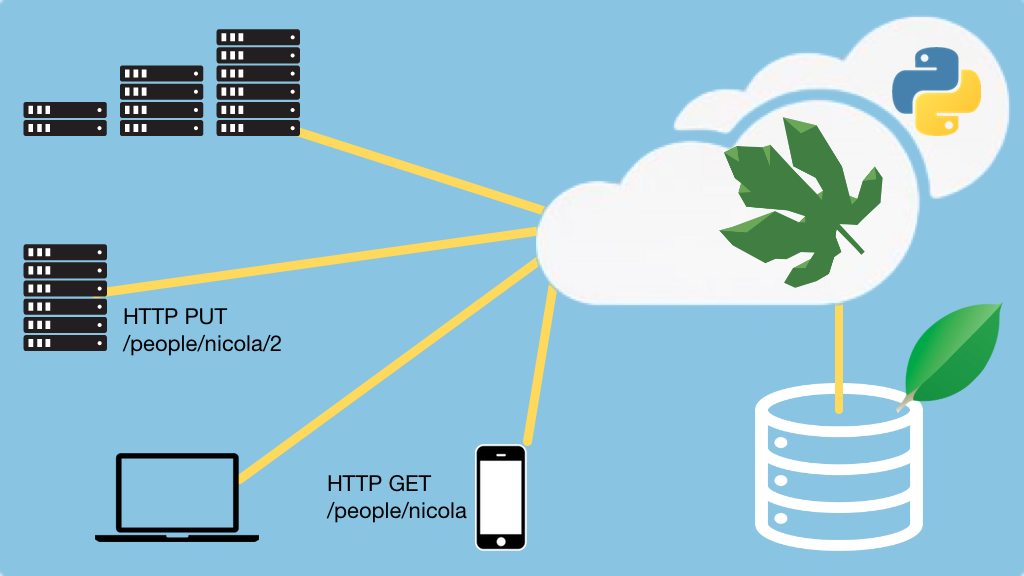Search Talk Python To Me episodes
Pyx isn’t a PyPI replacement. Think server, not just index. It mirrors PyPI, plays fine with pip or uv, and aims to make installs fast and predictable by letting a smart client talk to a smart server. When the client and server understand each other, you get new fast paths, fewer edge cases, and the kind of reliability teams beg for. If Python packaging has felt like friction, this conversation is traction. Let’s get into it.
Get notified when the Talk Python in Production book goes live and read the first third online right now.
With this episode, I hope you’re ready for an inside look at the latest happenings in Flask, one of Python’s most popular web frameworks. David Lord, Flask’s lead maintainer, takes us behind the scenes of recent performance boosts (like a 50% speedup in Werkzeug), the future of async support via Quart, and how the broader Pallets ecosystem is evolving under one umbrella. You’ll also hear about Pallets Eco, which aims to streamline and revive critical Flask extensions, and learn how you can contribute to this massive open-source effort. If you use Flask, want to keep your Python apps on the cutting edge, or just love data-driven insights from top maintainers, this episode is for you.
Flask and its sister libraries are faster, leaner, and more maintainable than ever. The pallets-eco initiative aims to keep the Flask extension ecosystem thriving. David and the Pallets team welcome new contributors, especially folks interested in type annotations, extension maintenance, or community support. Check out the Pallets Discord to get involved!
- Michael #1: Hatch v1.8
- Michael #3: Steering Council 2024 Term Election Results
- Extras
- Joke: Joke: The dream is dead?
But just how much work is it to take a framework deeply built on Pydantic and make that migration? What are some of the pitfalls? On this episode, we welcome back Roman Right to talk about his experience converting Beanie, the popular MongoDB async framework based on Pydantic, from Pydantic v1 to v2. And we'll have some fun talking MongoDB as well while we are at it.
We have Polars' creator, Ritchie Vink here to give us a look at this exciting new data frame library.
On this episode, you'll meed Jeroen Janssens. He wrote the book Data Science on The Command Line Book and there are a bunch of fun and useful small utilities that will make your life simpler that you can run immediately in the terminal. For example, you can query a CSV file with SQL right from the command line.
On this episode, we have Irit Katriel, Pablo Galindo Salgado, Mark Shannon, and Brandt Bucher all of whom participated in releasing Python this week on the show to tell us about that process and some of the highlight features.
On this episode, we're joined by Michael Christofides, co-creator of pgMustard, to discuss and explore the EXPLAIN command for Postgres and other databases as well as all the recommendations you might dig into as a result of understanding exactly what's happening with you queries.
But there's a new Python database in town, and as you learn in during this episode, many critical Python libraries have come into existence because of it. This database is called EdgeDB. EdgeDB is built upon Postgres, implemented mostly in python, and is something of a marriage of a traditional relational database and an ORM.
But the popular ORMs, such as SQLAlchemy and others, far predate Pydantic. But could they be put together?
Dear PyGui: A fast and powerful Graphical User Interface Toolkit for Python with minimal dependencies, created by Jonathan Hoffstadt and Preston Cothren. They are here to tell us all about it.
On this episode, we're talking about a tool called Mito. This is an add-in for Jupyter notebooks that injects an Excel-like interface into the notebook. You pass it data via a pandas dataframe (or some other source) and then you can explore it as if you're using Excel. The cool thing is though, just below that, it's writing the pandas code you'd need to do to actually accomplish that outcome in code.
We all know that reproducibility and related topics are important ones in the data science space. The freedom to pop open a notebook and just start exploring is much of the magic.
Yet, that free-form style can lead to difficulties in versioning, reproducibility, collaboration, and moving to production. Solving these problems is the goal of Kedro. And we have 3 great guests from the Kedro community here to give us the rundown: Yetunde Dada, Waylon Walker, and Ivan Danov.
This is one of the fastest growing projects in the Python space these days. And the creator, Will McGugan is here to give is the whole history and even a peak at the future of Rich and a follow on library called Textual.
On this episode, you'll meet David Born, a computational biologist who uses Python to help automate genetics research and helps move that work to production.
Stop writing manual code or cron-job based code to create data pipelines check out Airflow. We're joined by three excellent guests from the Airflow community: Jarek Potiuk, Kaxil Naik, and Leah Cole.
This episode is different. Rather than seeing how far we can push Python to the edges of technology, we are diving in to the tiny Python applications that might never be released publicly and yet can transform our day to day lives with simple automation on an individual level.
That's the topic of this episode. Bentz Tozer and John Speed Meyers are here to share their research into typosquatting on PyPI and other sneaky deeds. But we also discuss some potential solutions and fixes.
Datasette helps people take data of any shape or size, analyze and explore it, and publish it as an interactive website and accompanying API.
Dogsheep is a collection of tools for personal analytics using SQLite and Datasette. Imagine a unified search engine for everything personal in your life such as twitter, photos, google docs, todoist, goodreads, and more, all in once place and outside of cloud companies.
On this episode we talk with Simon Willison who created both of these projects. He's also one of the co-creators of Django and we'll discuss some early Django history!
On this episode, you'll meet Robert "Kane" Replogle, who works on the simulation and test software at Richard Childress Racing. The NASCAR team that just finished #1 and 2 in at the Texas Motor Speedway.
Maybe you've heard of the Circuit Playground Express, BBC micro:bit, or the fancy Adafruit CLUE. They aren't too expensive (ranging from $25 to $50 each). But for large groups such as classrooms, this can be a lot of money. Moreover, getting your hands on these devices can sometimes be tricky as well.
This episode is an amazing example of this. You'll meet Cornelis van Lit. He is a scholar of medieval Islamic philosophy and woks at Utrecht University in the Netherlands. What he is doing with Python is pretty amazing.
On this episode, you'll meet Justin Kiggins and Corinne Teeter who are research scientists using Python for their daily work at the Allen Institute for Brain Science. They are joined by Nicholas Cain who is a software developer supporting scientists there using Python as well.
Wouldn't it be great if we could program these with Python? Even better if we could use well-known APIs such as Flask.
On this episode, we'll meet up with Brett Slatkin and replay his path through PyCon. We touch on his top 10 sessions from PyCon 2017.
With the Cambrian explosion of database options and variations created from 2009 to present, it gets much harder to even choose the database much less follow the well-worn path of 3NF.
Today I'm here with David Beazley who has been deeply exploring this space with his project Curio.
And yet, if we look at programming jobs in Silicon Valley, you'll see that over 85% of them are filled by men and less than 15% women.
You'll learn how he's using Python as the backend for a set of major computer games. His thoughts on the future of web development and HTTP 2. And why Rust is an amazing new language you should check out.
All Python programmers use the import statement, but do you really know how it works and what it allows? Join David and Michael to take a deep dive into diabolical issues related to modules, packages, and imports. When we're done, you'll finally be ready to unleash your million line micro framework on the world!
Join Michael in a conversation with Dr. Curran from Sydney University and co-founder of Grok Learning to learn about both of these and more! You'll learn about the different types of online tutorials, or short courses, you can use for learning or teaching including a text-based MUD game!
Kenneth works at Heroku and may be best known for creating Requests - HTTP for Humans. Requests is the most popular package on PyPI, It has been downloaded over 40,000,000 times.
You'll learn a lot about the history of the project and how it has evolved over time. You'll also here where Mike got some of his inspiration for the design patterns used in the library.
Nicola and Michael talk about the careful balance of leading a successful open-source project in EVE and keeping the day job going. You'll also learn why Nicola chose MongoDB as the default backend for EVE.
We also discuss how Nicola got into Python and compare and contrast the open-source world of the Python community with other ecosystems such as the C# / .NET ecosystem.
Check out Nicola's course on Eve REST Framework

